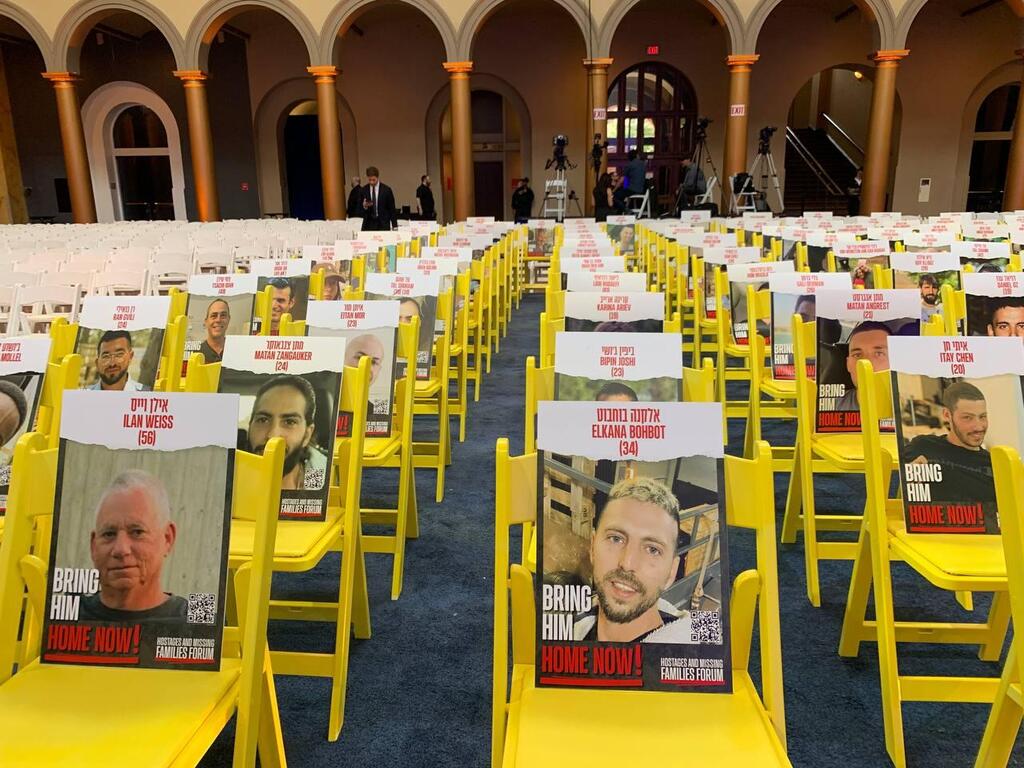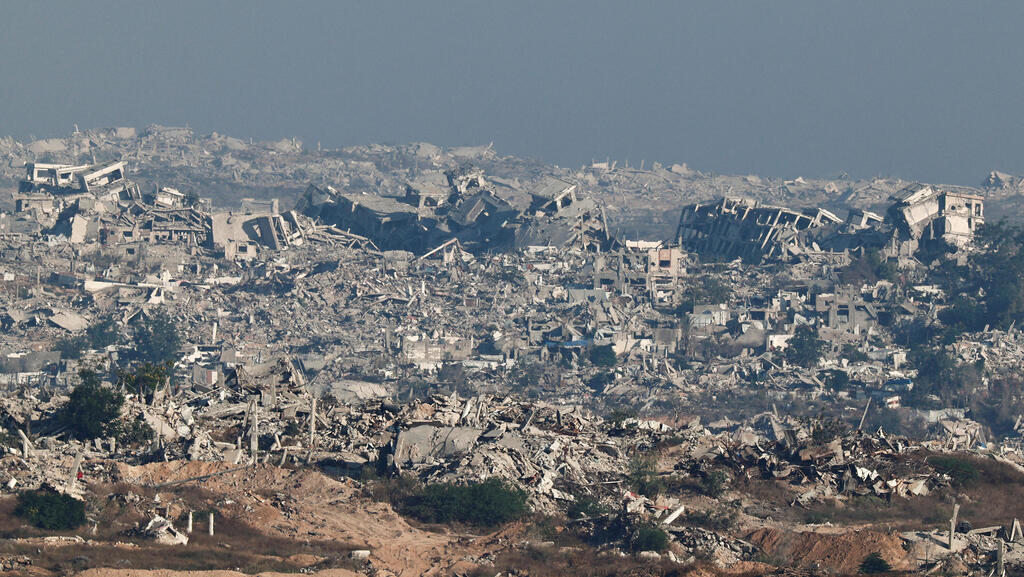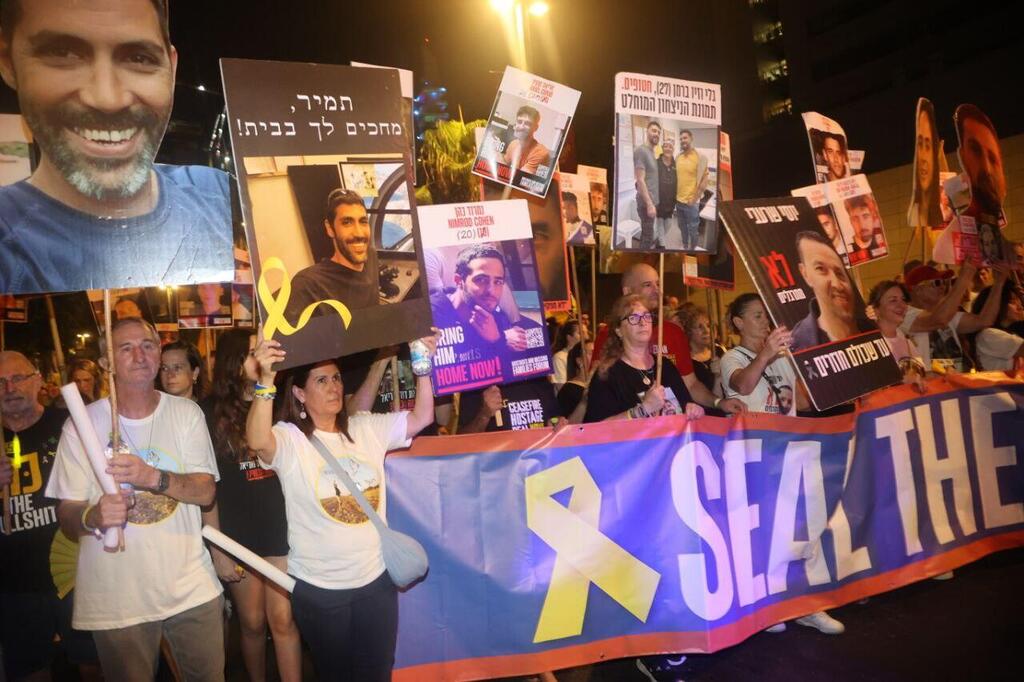3 View gallery


Photos of hostages held in Gaza are displayed on yellow chairs at an installation calling for their release
(Photo: Daniel Edelson)
When the ceasefire collapsed, war resumed, and negotiations stalled, I reached out – then as a private citizen – to contacts in Israel’s government. Now, I would like to speak to you, the people of Israel. The citizens who have suffered and fought, who confront growing global criticism and most of whom want this war to end. Your leaders should table a new proposal to bring all the hostages home in exchange for a permanent ceasefire – once and for all.
Let me explain—today, Israel is strong, and its enemies are weak. But Israel has not turned military progress into a strategy that secures its people for the long term. Israel’s leaders are pursuing an open-ended military campaign that is returning negligible, essentially imperceptible, operational gains at the cost of inflicting an ongoing humanitarian catastrophe—grievous death and suffering—on innocent Palestinians. Israel’s international isolation is spreading, deepening and solidifying—a compounding harm to Israel’s long-term security and vitality. And the continuing war stands in the way of a positive regional vision of normalization and stability.
In light of all this, Israeli negotiators should move beyond the 60-day ceasefire proposal they have put forth thus far and instead make a bold and immediate offer: a durable end to the war for the swift return of all the hostages, living and deceased. No more haggling over phases; no more public insistence on the part of Israeli leaders that the war can resume two months down the line. In this proposal, Hamas would yield administrative control of Gaza to a technocratic Palestinian governance structure that is supported by regional countries. The world would help with the monumental task of rebuilding Gaza.
3 View gallery


Vast areas of Gaza have been reduced to rubble amid the ongoing war between Israel and Hama
(Photo: REUTERS/Amir Cohen)
Would Hamas accept this kind of deal? I believe they ultimately would have to, especially if the United States lined up the world to support this outcome and bring pressure to bear on Hamas.
Some will say, “But there are still Hamas fighters in Gaza.” The ceasefire in Lebanon showed that Israel can remain secure without killing every last Hezbollah terrorist—an unachievable military objective in any event. Israel can take a similar approach with Hamas in Gaza.
Others will say, “But Hamas will simply work to re-arm.” Here again, the strategy Israel is currently pursuing in Lebanon—taking active measures to deny arms transfers to Hezbollah—can be applied in Gaza. And Israel is even better positioned to prevent the resupply of Hamas because it has much more control over the borders of Gaza than it does in Lebanon. Furthermore, Israel can work on a diplomatic strategy with the Arab states, which have just called for the first time for Hamas to disarm.
I’m acutely familiar with the unprecedented challenges that Israel has faced in Gaza. But the alternative to ending the war is a never-ending war, at continuing moral and strategic cost to Israel, without any articulable gain other than the unacceptable, abhorrent objective of the far right: the full destruction and depopulation of Gaza, replaced by settlements. Israel must show its critics that this is not the path it seeks. Otherwise, it will watch its friends become its critics.
3 View gallery


Families and supporters of hostages held in Gaza hold signs and photos of their loved ones during a protest calling for a deal to secure their release, in Tel Aviv, July 26, 2025
(Photo: Moti Kimchi)
I know Israel did not choose this war. It was Hamas that stormed the border, that savagely massacred innocent families, that targeted women with sexual violence, that took hundreds of hostages and that then fled back into Gaza to hide and fight among a civilian population. As a result, Israel faced an almost unprecedented burden. It had to fight terrorists embedded among innocent people operating from a vast tunnel network underneath civilian infrastructure. This is not the battlefield any nation-state would have chosen, but it is the one that Israel faced, nonetheless.
But the complexities that Israel confronts on the battlefield do not justify the horrific reality of innocent people starving—nothing does. The continuation of the war has meant the extreme exacerbation of the humanitarian crisis. I have been communicating with senior Israeli officials about the profound suffering of innocent Palestinians, especially children. Over the past few months, we’ve seen a prolonged blockade of basic necessities to the entirety of Gaza, followed by the implementation of a poorly organized aid scheme that has abjectly failed Palestinian civilians and contributed to an awful human toll.
Israeli officials say it’s not their fault—that there are trucks inside Gaza, and the UN and Hamas are to blame for impeding distribution of aid. But the fact remains that Israel controls Gaza militarily, and therefore, Israel has the responsibility to create an environment where humanitarian professionals can safely distribute assistance to civilians in Gaza.
 Former US national security adviser Jake Sullivan Photo: AFP
Former US national security adviser Jake Sullivan Photo: AFPThe root of the issue, of course, is the ongoing war. The suffering cannot end unless the war ends. And again, there is nothing more for the war to achieve for Israel’s security. That is why I am calling for a change in Israel’s approach, for a permanent end to the war and a return of all the hostages.
On my first trip to Israel as the U.S. national security adviser, I remember how my meetings with Israeli officials ran long. It was Hanukkah, and when night fell, we lit the menorah together. In that moment, in the candlelight, the thousands of miles between Washington and Israel did not feel so distant. Our nations are fierce and spirited democracies. We thrive on vigorous debate. We have the capacity for self-correction. And we speak to each other, openly and candidly, as friends. That is the spirit in which I write this article today.




